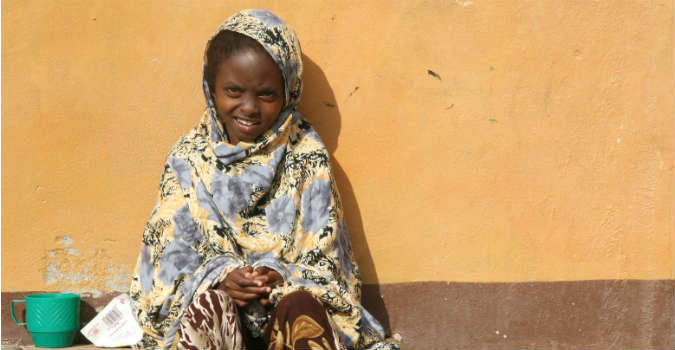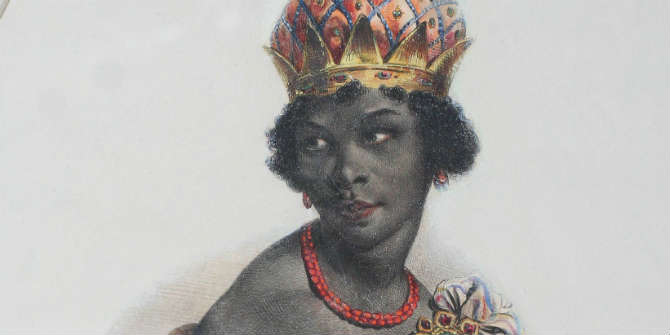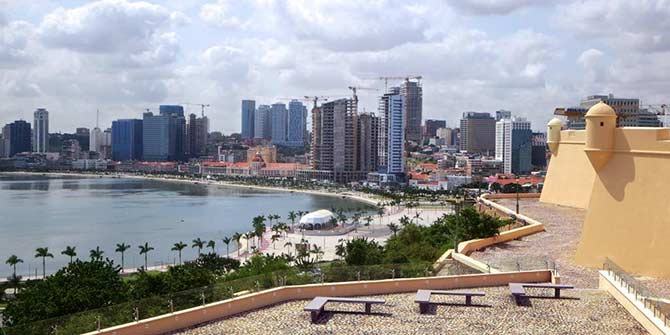Those looking for an antidote to the current political tumult might find solace in the personal reflections of Albie Sachs, a lawyer and activist who helped to shape, and later interpret, South Africa’s constitution, says Nick Branson.
In a context of persistent inequality, mass unemployment, and allegations of corruption at the highest levels of government, South Africa’s post-apartheid settlement is increasingly under the spotlight. Barely two decades after it was finalised, a growing proportion of youth view the 1996 constitution as an obstacle to change. Paradoxically, an older generation clings to the document, and the institutions established by it, as the last brake on a president seemingly focused on personal enrichment at the expense of the national interest.
 While he does not criticise Jacob Zuma directly, Sachs dedicates his tenth book to the “millions of ordinary South Africans” who celebrated the Nkandla judgment handed down by the Constitutional Court on 31 March 2016. In its verdict, the Court found that the Public Protector’s report was binding on the president. Sachs argues that the Public Protector’s inquiries “have not only helped clarify issues of great public controversy, they have also given legitimacy to the whole constitutional project.”
While he does not criticise Jacob Zuma directly, Sachs dedicates his tenth book to the “millions of ordinary South Africans” who celebrated the Nkandla judgment handed down by the Constitutional Court on 31 March 2016. In its verdict, the Court found that the Public Protector’s report was binding on the president. Sachs argues that the Public Protector’s inquiries “have not only helped clarify issues of great public controversy, they have also given legitimacy to the whole constitutional project.”
In his tenth book, the author seeks to dispel three myths around the transition to majority rule and constitution-making process. This compilation of two-dozen essays and speeches from 1998-2016 therefore serves to remind South Africans of the intense contestation of recent years, and convince them that the dividends warrant defending with “the same courage and determination we had in the days of the struggle”.
Sachs maintains that the 1996 basic law is itself “transformative”, although his rationale is buried in a paper on jurisprudence targeted at a Kenyan audience. Many will question whether South African judges in lower courts espouse the same legal reasoning (the purposive approach) as those who grapple with the constitution on a daily basis. South African constitutional law professor Pierre de Vos maintains they do not.
The author’s insistence that the constitution is a progressive document is similarly challenged by a growing number of citizens who (erroneously) regard it as an obstacle to land reform. As Sachs stressed in a recent interview, the Constitutional Court have yet to be approached to rule on what might constitute “just and equitable” compensation for the expropriation of land. The obstacle to accelerating land reform is, therefore, primarily a question of political will rather than legal obstacle.
Such nuances are lost on those expressing legitimate grievances, and reading Sach’s conservative opinion of the #RhodesMustFall debate, one is reminded just how detached he has become from grassroots opinion. He was, however, once like the youth of today. Studying law and practising as an advocate in Cape Town, Sachs initially viewed the law as a tool of oppression. He was forced into taking a diametrically opposed view when tasked by the ANC with “operationalising” the Freedom Charter, together with it with Kader Asmal. Sachs therefore played a central role in defining the current Bill of Rights, although he credits Oliver Tambo with the initiative.

This is one of numerous interesting footnotes to history to be found in the book. Sachs contends that the Freedom Charter had its genesis in a discussion between Paul Robeson and Professor ZK Matthews. The author also describes how the initiative for an amnesty supported by a Truth and Reconciliation Commission came to be advanced by the ANC. He frames it as the party’s response to the report of the Motsuenyane Commission, established to investigate allegations that its armed wing, MK, had used torture during the liberation struggle.
Sachs displays an acute awareness of the potency of history, reflecting on archives and their shortcomings, and the promotion of national unity through the teaching of a common past. Similarly engrossing are his reflections on the symbolic conversion of a former prison complex into the Constitutional Court, and attempts to address the spatial geography of apartheid. Though Sachs’ accounts of time in Mozambique and Tanzania are nostalgic, his thoughts on language policy warrant examination.
It was in Maputo that Sachs was the victim of a car bomb which cost him his right arm and the sight in one eye. A series of vignettes reflect on his recovery from the blast, meeting his assailant, living with a disability, and existence in exile. Such tales are at times moving and often humbling, but his writing also exudes an infectious optimism and wit. It is such jocularity which made this reader wonder whether there was a deliberate irony in the subtitle “an activist judge”. Sachs was an anti-apartheid activist, and then a judge. Yet when interviewed by the Judicial Service Commission, members of the panel questioned whether he was too lenient towards ANC comrades.
Whatever Sachs’ political sympathies, they did not prevent him from pushing for as many constitutional safeguards as possible during the six years of negotiations over the document. In a paper first published in 1992, he argued that “all constitutions are based on mistrust. The more devoted we are to our leaders and our organisations, the more we have to be constitutionally mistrustful of them.”
This principle, however, appears to be applied only to elected leaders and not traditional authorities. Sachs verges on romanticising the manner in which chiefs administer justice in rural Mozambique. Although he stops short of suggesting how such traditions can be harmonised with constitutional principles, Sachs does emphasise the need for customs to evolve, much as the common law does:
“The strength of customary law lays in its organic connection with the lives and culture of the people. If customary law is to be revitalised it must accordingly link itself up to the new energies of a people in transition and be sensitive to the real nuances and contradictions of daily life.”
Such philosophical musings encapsulate where this volume falls short; it lacks a manifesto for change and fails to meaningfully engage with the radical demands of disenfranchised youth. More comfortable South Africans seeking an antidote to the current political tumult might, however, find solace in the personal reflections of a wise and courageous man who has diligently served a young nation about which he evidently cares deeply.
We, the People: Insights of an Activist Judge. Albie Sachs. Wits University Press. 2016.
Nick Branson (@NHBranson) is Senior Researcher at Africa Research Institute and a PhD candidate at SOAS, University of London.
The views expressed in this post are those of the author and in no way reflect those of the Africa at LSE blog or the London School of Economics and Political Science.





